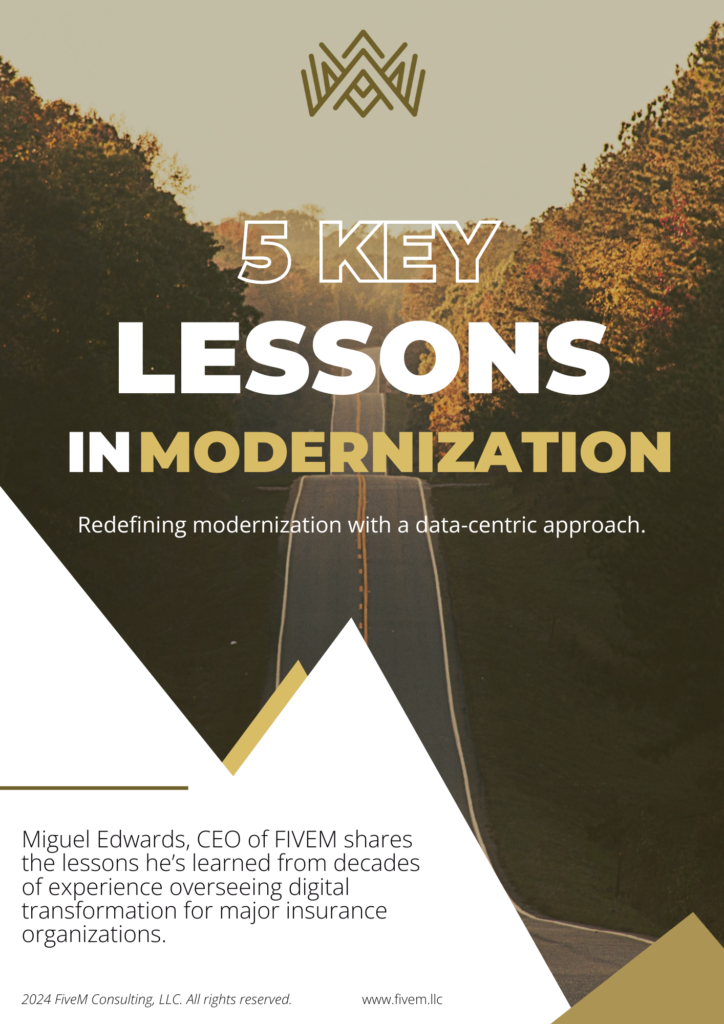In the insurance industry, staying ahead of the competition and effectively addressing the ever-evolving needs of customers hinges on innovation. While technology and data analytics undoubtedly play critical roles in fueling this innovation, an equally significant factor often goes unnoticed: the power of self-discovery.
Understanding Self-Discovery
Self-discovery, at its core, involves a deep understanding of one’s innate talents, passions, and the unique value one brings to their professional role. For leaders and employees alike in the insurance industry, this process means recognizing what drives them, where their natural strengths lie, and what they truly enjoy doing. When individuals tap into this self-awareness, it not only ignites personal growth but also serves as a powerful catalyst for innovation and operational excellence within the organization.
Why Self-Discovery Matters in Insurance
Enhanced Problem-Solving: When individuals gain clarity about their strengths and passions, they approach challenges with a heightened sense of creativity and determination. In the insurance industry, where complex issues are a daily reality, a team of self-aware professionals can generate more effective and innovative solutions. By understanding their unique problem-solving abilities, these individuals bring fresh perspectives that propel the company forward.
Increased Engagement and Motivation: When employees align their work with their personal strengths and interests, they become more engaged and motivated. This heightened engagement not only boosts productivity but also nurtures a culture of innovation. People who genuinely love what they do are more inclined to go the extra mile, contributing to the company’s growth and success.
Better Alignment with Organizational Goals: Self-discovery empowers individuals to align their personal ambitions with the broader objectives of the organization. When employees comprehend how their unique skills contribute to the company’s mission, their commitment to achieving strategic goals deepens. This alignment is crucial for driving long-term growth and ensuring that the organization thrives in a competitive market.
Implementing Self-Discovery in Your Organization
Encourage Continuous Learning: Cultivating an environment that supports continuous learning and development is essential. Offer a range of training programs, workshops, and resources designed to help employees explore their strengths and passions. By encouraging them to pursue new skills and knowledge that resonate with their interests and career aspirations, you create a culture of perpetual growth.
Foster Open Communication: Promoting a culture of open communication is key to successful self-discovery. When employees feel comfortable sharing their goals and aspirations, it fosters a deeper understanding between them and their managers. Regular one-on-one meetings and feedback sessions enable managers to provide the support needed to align employees’ roles with their strengths, enhancing job satisfaction and overall performance.
Provide Opportunities for Exploration: Allowing employees to explore various roles and responsibilities within the organization can be incredibly beneficial. Job rotations, special projects, and cross-functional teams offer individuals the chance to discover new interests and strengths. Not only does this benefit the individuals, but it also brings fresh perspectives and innovative ideas to the company, driving continuous improvement.
Recognize and Celebrate Achievements: Acknowledging and celebrating the achievements of employees who demonstrate innovation and excellence is crucial. Recognition serves as a powerful motivator, reinforcing the importance of self-discovery and continuous improvement. When employees feel valued for their contributions, they are more likely to continue exploring their potential and driving innovation within the company.
The Impact on Innovation
When individuals are encouraged to discover and leverage their unique talents, the entire organization reaps the benefits. Innovation thrives in environments where people feel valued, engaged, and aligned with their roles. In the insurance industry, this alignment can lead to the development of groundbreaking products, enhanced customer experiences, and more efficient processes. As self-discovery permeates the organizational culture, it creates a fertile ground for continuous innovation and growth.
The Role of Leadership in Self-Discovery
Leading by Example: Leaders who actively embrace self-discovery set a powerful precedent for their teams. By openly exploring and sharing their strengths and passions, they cultivate a culture of authenticity and self-awareness. This transparency not only builds trust but also encourages employees to embark on their own journeys of self-discovery, fostering a collective commitment to innovation and excellence.
Mentoring and Coaching: Effective leaders act as mentors and coaches, guiding employees through their journeys. By providing personalized feedback and support, leaders help individuals uncover their potential and align it with the organization’s goals. This mentorship is vital for creating a workforce that is both self-aware and deeply committed to the company’s success.
Creating a Supportive Environment: Leaders play a crucial role in establishing an environment that nurtures self-discovery. By providing the necessary resources, opportunities, and encouragement, they create a space where employees feel empowered to explore their strengths and passions. This supportive atmosphere is essential for fostering innovation and ensuring that the organization remains agile and competitive.
Challenges and Solutions in Promoting Self-Discovery
Overcoming Resistance: Implementing self-discovery initiatives may be met with resistance, especially when it involves personal exploration. Leaders must address this by clearly communicating the benefits and providing support throughout the process. By fostering an open and supportive environment, leaders can help employees overcome their initial reluctance and embrace the journey.
Balancing Business Needs: While self-discovery is important, it must be balanced with the organization’s business needs. Leaders should ensure that personal growth aligns with the company’s strategic goals. By making a clear connection between individual strengths and the organization’s success, leaders can create a win-win situation where both employees and the company benefit.
Maintaining Momentum: Self-discovery is an ongoing journey, not a one-time event. Leaders must continuously reinforce the importance of personal growth and provide ongoing opportunities for exploration and development. By keeping the momentum alive, leaders can ensure that self-discovery remains an integral part of the organizational culture, driving innovation and long-term success.
Case Studies: Success Stories in the Insurance Industry
Company A: By implementing a comprehensive program, Company A experienced a significant increase in employee engagement and innovation. This cultural shift led to the development of several groundbreaking insurance products that addressed emerging market needs. The company’s commitment not only enhanced its product offerings but also solidified its position as an industry leader.
Company B: Focusing on self-discovery helped Company B reduce turnover rates and improve customer satisfaction. Employees who aligned their roles with their strengths became more motivated and provided superior service, resulting in higher customer loyalty. This alignment between individual strengths and company objectives proved to be a key driver of success.
The Future of Self-Discovery in Insurance
Embracing Technology: As the insurance industry continues to evolve, technology will play a pivotal role in facilitating self-discovery. Advanced tools and platforms can provide personalized insights and development plans, helping individuals and organizations achieve their full potential. By integrating technology with initiatives, companies can create a more agile and innovative workforce.
Building a Resilient Workforce: In a rapidly changing industry, self-discovery can help build a resilient workforce. Employees who understand their strengths and passions are better equipped to adapt to change and drive innovation. By fostering a culture of self-discovery, companies can ensure that they are well-positioned to navigate the challenges of the future.
Self-discovery is not just a personal journey; it is a strategic advantage for organizations in the insurance industry. By fostering a culture that encourages continuous learning, open communication, and exploration, companies can unlock the full potential of their employees. This, in turn, drives innovation, enhances operational excellence, and positions the organization for long-term success. Embrace the power of self-discovery, and watch your company transform into a hub of innovation and growth.





